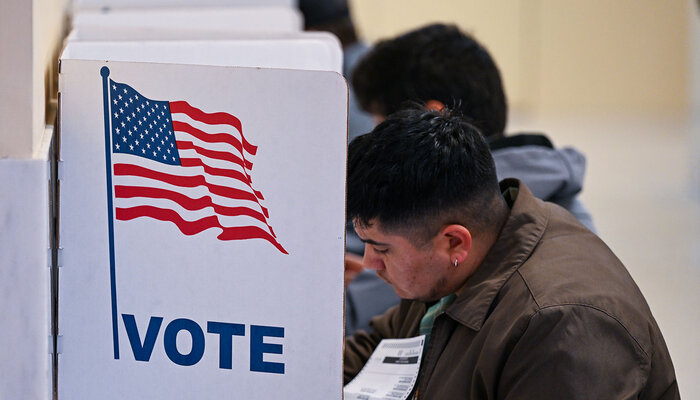Since the 2020 presidential election, false claims about the accuracy of the results have spurred a movement to challenge the eligibility of large numbers of voters. This resource explains the federal and state legal protections for eligible voters swept up in this effort.
What are voter eligibility challenges?
Most states allow private citizens to challenge their fellow citizens’ ballots or voter registrations, though the rules vary for how and when they can do so. Many states enacted or expanded these laws in the immediate aftermath of the Reconstruction era to suppress Black voters. Even when challenges are not intentionally aimed at marginalized groups, they are likely to disproportionately impact voters with limited transportation or childcare resources or inflexible work schedules, as they may not be able to attend election board hearings or otherwise defend their eligibility.
In most states, people can challenge registrations during some period before the election, generally through a written form or affidavit. In some states, the election officials receiving such challenges review them to determine if they are sufficient to call a voter’s eligibility into question; in other states, officials simply contact the challenged voter automatically. In some states, election officials then call a hearing to obtain further evidence. Generally, if a voter is removed based on a challenge, state law requires that they be notified and given a chance to appeal the decision. For example, in Georgia, challenges to voter eligibility are typically heard by the county boards of registrars or the county boards of elections. If they uphold a challenge, they must notify the voter, who has the right to appeal the decision in court.
Most states also allow challenges at polling places, on Election Day or during early voting, or at counting centers where absentee ballots are processed. In many states, any voter registered at that precinct can challenge other voters; in others, only designated challengers can do so. Generally, if someone challenges a voter in person, an official then questions the voter to confirm eligibility. Voters may be asked to show documents establishing their identity or address. Once the voter establishes their eligibility at the polls, they should be allowed to vote a regular ballot. If questions remain, they should be allowed to cast a provisional ballot and resolve these questions shortly after voting.
In theory, private challenge laws enable citizens to inform local officials when they know someone in their community has moved, died, or registered to vote incorrectly. But even this theoretical benefit is minimal, both because populations have become more mobile and because election officials now have reliable tools for updating voter rolls and are required by state and federal laws to use them.
Why are mass voter challenges a concern in 2024?
In recent years, various groups have organized out of an unfounded belief that ineligible voters are swaying election results. These groups are encouraging their members to file mass voter challenges. In Georgia, for example, activists filed hundreds of thousands of challenges in 2021 and tens of thousands more in 2022. Michigan and Texas also saw mass challenges in 2022. In states including California, Colorado, North Carolina, and Oregon, activists have been going door to door to collect statements from residents, with the goal of filing challenges. Some of these roving challengers have exhibited aggressive behavior while demanding personal information.
Mass challengers often rely on software tools like EagleAI NETwork to easily pull data from various sources, such as the National Change of Address Registry, “Google scrapes,” business records, and property tax records. The National Change of Address Registry, standing alone, is an unreliable basis for flagging ineligible voters because it can sweep in common name duplicates, temporary relocations, and households where some but not all the residents have moved. EagleAI appears to combine change-of-address data with other sources, like the Voter Reference Foundation (VoteREF), that are far less reliable than the information states can access through the Electronic Registration Information Center, an interstate voting data partnership. A court recently described the mass challenges filed by one such organization, True the Vote, as “utterly lack[ing] reliability” and “verg[ing] on recklessness.”
Not only are mass challenges often based on unreliable data, but they run the risk of inundating election offices just before the election, interfering with their other administrative tasks and potentially causing inaccurate purges. Indeed, there is some evidence that election deniers are deliberately aggregating challenges and timing them for the last minute.
What legal protections are in place to safeguard voters from unfounded challenges to their eligibility?
Fortunately, critical legal protections exist under federal and state law to deter mass challenges and prevent them from knocking voters off the rolls.
First, the National Voter Registration Act of 1993 (NVRA), commonly known as the “Motor Voter” law, limits when and how states remove voters from their rolls. To begin with, the NVRA prohibits states from engaging in systematic removals of voters within 90 days of a federal election. Any mass challenge based solely on matching voter lists against a database such as the National Change Of Address registry is clearly systematic, so election officials are prohibited from relying on these challenges to remove voters in the lead-up to a federal election.1
Moreover, for challenges based on allegations that a voter has moved, unless the voter confirms the move in writing, the NVRA requires that officials send them a notice and wait two federal election cycles before removing them. While voters are in this period, they may be moved to inactive status, where they have to confirm their eligibility before voting. If a voter responds to the notice or votes in either of the following elections, they must be restored to active status on the rolls. Indeed many of the names flagged in these mass challenges are already on state inactive lists. Finally, the NVRA requires that list maintenance practices be “uniform and nondiscriminatory,” which, in addition to the constitutional protections outlined below, bars officials from removing voters based on challenges that target certain communities or demographics.2
Second, Section 11(b) of the VRA prohibits conduct that intimidates voters, whether it was intended to intimidate or not. A challenge can instill fear and anxiety among voters, potentially discouraging them from voting altogether, especially if they are uncertain about the process or their legal rights. In fact, one of the most well-known cases about voter intimidation, which led to a 30-year consent decree that limited the Republican Party’s “ballot security” efforts, arose partly from the party’s abusive and discriminatory use of challenges. Federal law also prohibits conspiracies to deprive voters of their right to vote based on their race, so organized efforts to engage in discriminatory mass challenges are illegal, whether they are intimidating or not. And if challengers publish false information about voters, they may also run afoul of defamation laws.
In addition to federal protections, some states have enacted statutory safeguards that require specific and credible information before a voter’s eligibility can be questioned. For example, Nevada only allows challenges based on “personal knowledge,” that is, “firsthand knowledge through experience or observation of the facts upon each ground that the challenge is based.” This type of requirement should bar challenges based on internet or database searchers, which clearly do not yield firsthand knowledge. It should also bar other forms of secondhand information, such as when a challenger purports to have spoken to someone at a registered address and learned that the registrant no longer lives there. Other states set a higher evidentiary bar before voters can be removed, such as Wisconsin’s “beyond a reasonable doubt” standard or Arizona’s “clear and convincing evidence” standard.
States also have formal requirements that create accountability for frivolous or bad-faith challenges. Several states, such as Texas, require individuals who challenge a voter’s eligibility to submit a sworn, notarized affidavit about the ground for each challenge, including specific details about the alleged ineligibility of the voter. Pennsylvania charges a fee for filing challenges. Several states likewise have laws that penalize perjurious or frivolous voter eligibility challenges. In Florida, anyone who knowingly makes a false statement concerning a voter eligibility challenge may be charged with a felony.
Lastly, challenges are subject to constitutional limits. The right to due process entitles individuals to notice of the challenge, an opportunity to present evidence and arguments in their defense before a fair and impartial body, and a decision made based on the facts and applicable law. The right to equal protection of the laws guarantees that voters are treated equally under the law and are not subjected to discrimination or disparate treatment based on protected characteristics when facing eligibility challenges.3
While mass challenges do pose risks for voters and impose burdens on election officials, federal and state protections, if enforced, will protect voters and help election administrators manage challenges while staying focused on the critical task of running free and fair elections.
Connie Wu and Lia Gallo provided research support for this piece.
Endnotes
-
1
52 U.S.C. § 20507; see also Arcia v. Florida Secretary of State, 772 F.3d 1335, 1344 (11th Cir. 2014) (holding that a program that uses “a mass computerized data-matching process to compare the voter rolls with other state and federal databases” is “a ‘systematic program’ under any meaning of the word”); N. Carolina State Conf. of NAACP, No. 1:16CV1274, 2018 WL 3748172, at *9 (holding that officials could not remove voters based on “generic” mass challenges, without first determining “each challenged voter’s specific circumstances”). -
2
52 U.S.C. § 20507(b)(1); see also H.R. REP. 103–9, 15, 1993 U.S.C.C.A.N. 105, 119; S. REP. 103–6, 31 (“The purpose of this requirement is to prohibit selective or discriminatory purge programs. This requirement may not be avoided by a registrar conducting a purge program or activity based on lists provided by other parties where such lists were compiled as the result of a selective, non-uniform, or discriminatory program or activity.”); United States v. Fla., 870 F. Supp. 2d 1346, 1350 (N.D. Fla. 2012) (finding state had likely violated the NVRA’s nondiscrimination provision by requiring anyone who has obtained a driver’s license as a noncitizen before becoming naturalized to prove citizenship); Janis v. Nelson, No. CR 095019-KES, 2009 WL 5216902, at *1 (D.S.D. Dec. 30, 2009) (finding that plaintiffs had sufficiently pled an NVRA violation by alleging that the state removed them from the rolls for a criminal offense that did not, under state law, warrant removal). -
3
Reynolds v. Sims, 377 U.S. 533 (1964); Boustani v. Blackwell, 460 F. Supp. 2d 822 (N.D. Ohio 2006).


